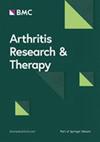The comprehensive relationship between combined anti-inflammatory and healthy diets and all-cause mortality in rheumatoid arthritis: results from NHANES 2003–2018
IF 4.9
2区 医学
Q1 Medicine
引用次数: 0
Abstract
Rheumatoid arthritis (RA) is a chronic, systemic autoimmune inflammatory disorder. Diet is recognized as a modifiable factor that may influence inflammation and potentially accelerate RA progression. Nevertheless, the effects of diverse dietary patterns and their combined impact on RA progression and long-term mortality remain inadequately understood. This study examined the association between dietary patterns and mortality in patients with RA, focusing on the Healthy Eating Index (HEI-2015) and Dietary Inflammatory Index (DII) and evaluating their combined effects. The analysis included 2,069 patients with RA from the National Health and Nutrition Examination Survey (NHANES) spanning 2003–2018. Weighted multi-variable Cox regression models estimated the relationship between the DII, HEI-2015, combined dietary patterns, and all-cause mortality in patients with RA. Linear associations between the DII, HEI-2015, and all-cause mortality were analyzed using restricted cubic splines (RCS). Dietary factors associated with mortality were identified through the Least Absolute Shrinkage and Selection Operator (LASSO) method, and subgroup and sensitivity analyses were conducted to strengthen the findings. Participants had a median age of 59 years (IQR: 48–69), with 42.1% male. Adjusting for potential confounders, the hazard ratio (HR) for individuals adhering to healthy and anti-inflammatory dietary patterns, as opposed to unhealthy and pro-inflammatory patterns, was 0.70 (95% CI: 0.53–0.92; adjusted P = 0.01; trend P = 0.02). In weighted Cox analyses of the DII and HEI-2015, higher quartiles showed no significant mortality risk difference from the lowest quartiles. The LASSO-Cox model identified 12 dietary components predictive of all-cause mortality in patients with RA, with an AUC of 0.749 (0.682–0.815) at 1 year, 0.763 (0.724–0.802) at 3 years, 0.783 (0.749–0.802) at 5 years, and 0.868 (0.712–0.938) for all death events. Kaplan-Meier analysis revealed that the low-risk dietary group exhibited significantly lower mortality compared to the high-risk group (P < 0.001). These findings suggest that combining a higher HEI-2015 with a lower DII score correlates with reduced all-cause mortality risk among patients with RA, supporting dietary modification as a potential strategy to prevent premature death in this population.抗炎联合健康饮食与类风湿关节炎全因死亡率之间的全面关系:NHANES 2003-2018的结果
类风湿性关节炎(RA)是一种慢性、全身性自身免疫性炎症性疾病。饮食被认为是一个可改变的因素,可能影响炎症并可能加速RA的进展。然而,不同饮食模式的影响及其对类风湿关节炎进展和长期死亡率的综合影响仍未充分了解。本研究考察了RA患者饮食模式与死亡率之间的关系,重点关注健康饮食指数(HEI-2015)和饮食炎症指数(DII),并评估了它们的综合影响。该分析包括2003-2018年国家健康与营养检查调查(NHANES)的2069名RA患者。加权多变量Cox回归模型估计了DII、HEI-2015、联合饮食模式与RA患者全因死亡率之间的关系。使用限制性三次样条(RCS)分析DII、HEI-2015和全因死亡率之间的线性关系。通过最小绝对收缩和选择算子(LASSO)方法确定与死亡率相关的饮食因素,并进行亚组和敏感性分析以加强研究结果。参与者的中位年龄为59岁(IQR: 48-69),其中42.1%为男性。调整潜在混杂因素后,坚持健康和抗炎饮食模式与不健康和促炎饮食模式的个体的风险比(HR)为0.70 (95% CI: 0.53-0.92;调整P = 0.01;趋势P = 0.02)。在DII和HEI-2015的加权Cox分析中,较高四分位数与最低四分位数的死亡率风险无显著差异。LASSO-Cox模型确定了12种饮食成分可预测RA患者的全因死亡率,1年的AUC为0.749(0.682-0.815),3年的AUC为0.763(0.724-0.802),5年的AUC为0.783(0.749 - 0.802),所有死亡事件的AUC为0.868(0.712-0.938)。Kaplan-Meier分析显示,低风险饮食组的死亡率明显低于高风险饮食组(P < 0.001)。这些发现表明,较高的HEI-2015与较低的DII评分相结合,与RA患者全因死亡风险降低相关,支持饮食调整作为预防该人群过早死亡的潜在策略。
本文章由计算机程序翻译,如有差异,请以英文原文为准。
求助全文
约1分钟内获得全文
求助全文
来源期刊

Arthritis Research & Therapy
RHEUMATOLOGY-
CiteScore
8.60
自引率
2.00%
发文量
261
审稿时长
14 weeks
期刊介绍:
Established in 1999, Arthritis Research and Therapy is an international, open access, peer-reviewed journal, publishing original articles in the area of musculoskeletal research and therapy as well as, reviews, commentaries and reports. A major focus of the journal is on the immunologic processes leading to inflammation, damage and repair as they relate to autoimmune rheumatic and musculoskeletal conditions, and which inform the translation of this knowledge into advances in clinical care. Original basic, translational and clinical research is considered for publication along with results of early and late phase therapeutic trials, especially as they pertain to the underpinning science that informs clinical observations in interventional studies.
 求助内容:
求助内容: 应助结果提醒方式:
应助结果提醒方式:


